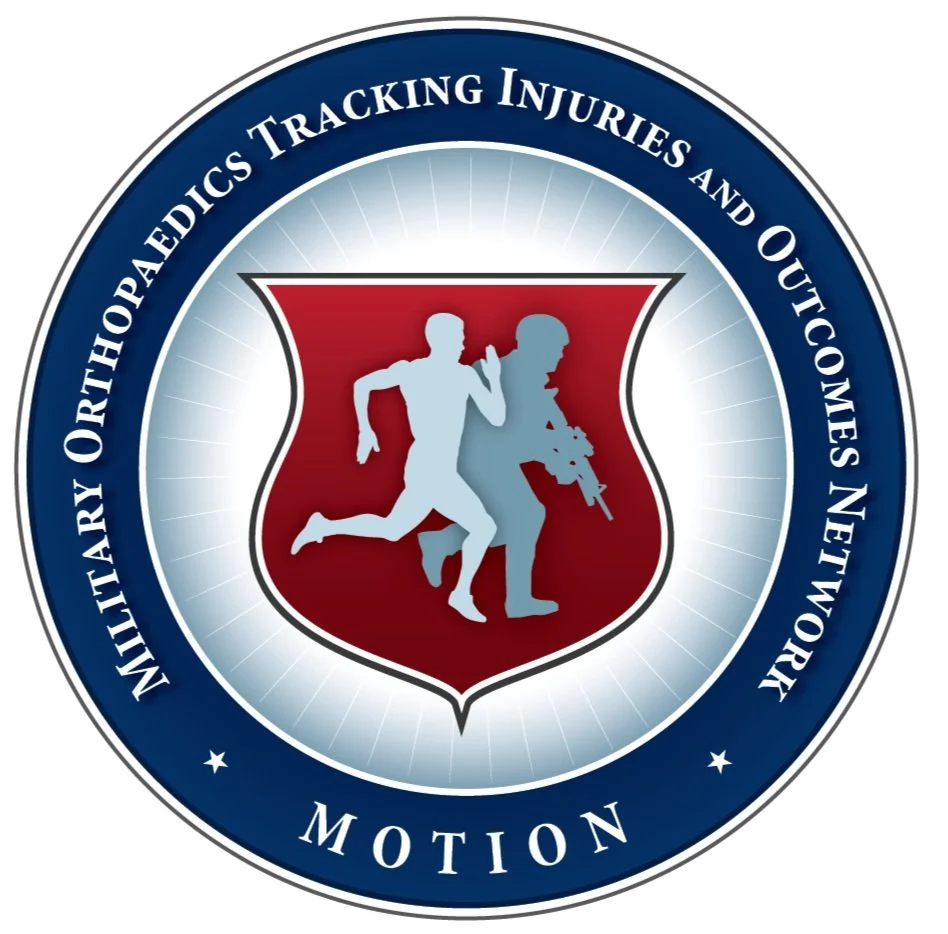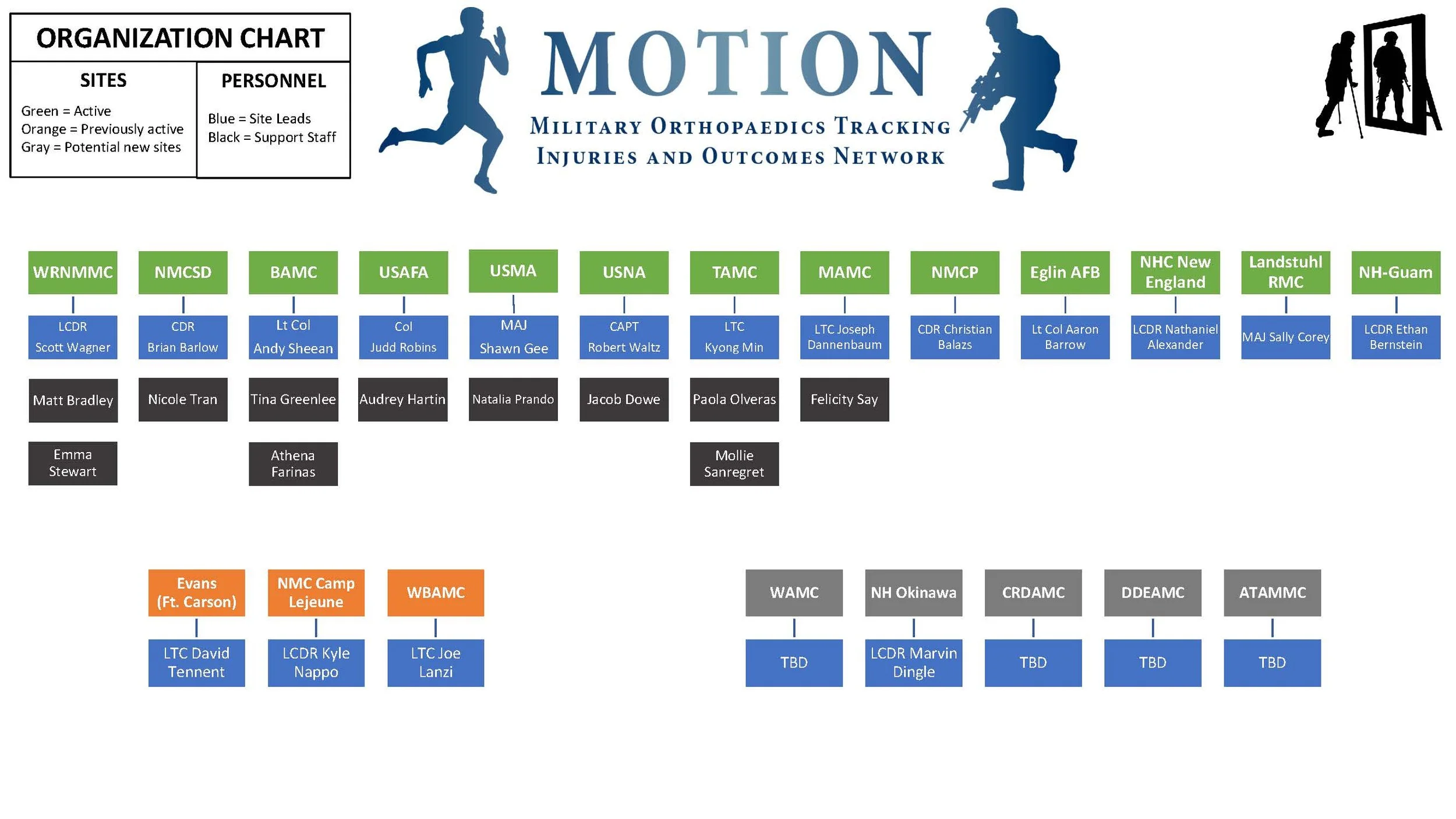RESEARCH FOCUS 1, Project 22, MSI General
Musculoskeletal injuries (MSKI) remain the largest source of disability, readiness impairment, non-deployable status, and separation within the United States (US) Military. The Department of War (DoW) pays $3.7 billion annually for MSKI care; while the Department of Veterans Affairs pays in excess of $5.5 billion annually for MSKI related compensations. The Military Orthopaedics Tracking Injuries and Outcomes Network (MOTION) is the first tri-service, multi-center DoW-wide initiative to optimize military-specific and clinically-relevant patient outcome metrics for MSKI.
MOTION has more than 15,000 enrolled patients who received various orthopaedic treatment interventions on upper extremity, lower extremity, or spine MSKI. Validated patient reported outcome data are collected as part of the standard of care during the pre-operative visit and during follow-up visits at 6 weeks, 6 months, 12 months, 2 years, 5 years, 10 years, 15 years, and 20 years after surgery. Patient data are then linked with clinical provider intra-operative assessments and other relevant clinical data to optimize patient outcomes, improve procedural efficiency, and increase healthcare value and cost effectiveness.
Future outcomes-driven changes require advanced predictive models and integration within the DoW. MOTION will develop, conduct, and disseminate original and innovative military relevant clinical research focusing on outcomes and return to duty following MSKI. This research will result in improved military health and readiness, the development of improved evidence-based clinical practice guidelines, mitigating long-term physical detriments following injury, promoting greater military career longevity, and improved post-military service quality of life. Under MIRROR, the MOTION platform will be enhanced with additional analytical resources to improve military medical readiness, enhance value-based healthcare improvement, and support continuous quality improvement.


